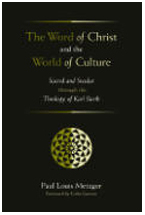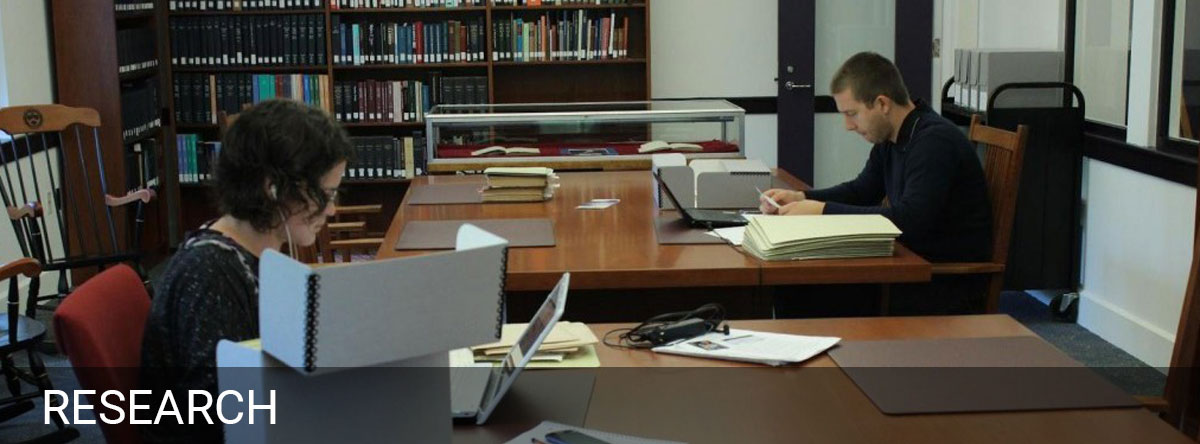
Paul Louis Metzger, The Word of Christ and the World of Culture: Sacred and the Secular Through the Theology of Karl Barth (Grand Rapids: Eerdmans, 2003), xxiii + 252pp.
Reviewed by Clifford Blake Anderson (February 10, 2005)
Paul Louis Metzger is Associate Professor of Christian Theology and the Theology of Culture at Multnomah Biblical Seminary in Portland, Oregon. He is also the Director of the Institute for the Theology of Culture, “New Wine, New Wineskins,” at Multnomah and editor of the new journal, Cultural Encounters. In his recent publication, The Word of Christ and the World of Culture: Sacred and Secular through the Theology of Karl Barth (2003), Metzger seeks to overcome the common perception that Karl Barth was theologically disinterested in culture. By mustering together his many theological writings about culture and the details of his practical engagement with cultural questions, Metzger demonstrates that Barth’s theology–both in theory and in practice–was always culturally-engaged.
Metzger contends that Karl Barth’s mature theology of culture emerged in the Göttingen Dogmatics, where Barth drew upon the christological categories of anhypostatsis and enhypostasis to produce a more adequate conception of the relation between the sacred and the secular than the dialectic of time and eternity of Romans II had permitted. According to Metzger, Barth sought a middle way between the fusion of the sacred and the secular and the separation of the sacred and the secular. “The problem with the medieval synthesis was that it did not make space for the radical difference between the sacred and the secular spheres. The problem with the Enlightenment project, on the other hand, was that by dismissing or at least privatizing the institution of religion, the secular created a vacuum it was unable to fill” (120). Metzger agrees with George Hunsinger’s interpretive use of the ‘Chalcedonian pattern,’ which he thinks also provides a key to understanding how Barth conceived of the relation between the secular and the sacred (cf. 189; 194; 233). Metzger argues that Barth’s search for a middle way likewise characterized his politics, which rejected both theocratic and secularized models. He contends that whereas Barth correctly identified the theocratic tendencies of the National Socialist state, he failed to recognize that a perverse theology also undergirded the apparently ‘secular’ communist states. “Whatever the atheistic state is,” writes Metzger, “it is not godless. It may not be pseudo-Christian, but it is not secular either” (193).
Metzger makes a crucial distinction between “secularity” and “secularism.” Barth endorsed the concept of secularity, which he identified with the humanization of culture. However, he rejected secularization, which Metzger defines as “the alienation of humanity and human culture from God” (70). Barth was thus opposed both to the divinization and to the secularization of culture. “Barth’s doctrine of the Word enables him to give a critical yet constructive response to culture whereby space is also made for the secular other in relation to the sacred. That is to say, the dedivinization and desecularization of culture leads to itshumanization, that is, the affirmation of the secular” (230).
Barth’s emphasis was primarily on the synthesis between the secular and sacred according to Metzger, not the diastasis between them. “…The point of diastasis is to break up faulty syntheses so that a more wholesome synthesis may be established, one that has in fact already been established with the world through the Word of Christ” (87). Such synthesis is based on the unity of the divine and human in Jesus Christ. For Barth, he writes, “that diastasis is only truly divine diastasis when viewed from the standpoint of the synthesis God provides for mediating the world to God in the incarnation of Jesus Christ” (225).
Metzger puts forward interesting parallels between Barth’s theological appreciation of the secularity of culture and his appreciation for the secularity of science. “Barth’s doctrine of creation gives room to science to engage in scientific enquiry apart from theological constraints” (212f.). He is also among the few (along with Colin Gunton) who do not fault Barth for failing to carry out an extensive engagement with questions of natural science in Church Dogmatics III (119).
There is a certain tension between creation and reconciliation in Barth’s theology according to Metzger (107f.). “The tension in Barth’s thought is due to the absence of consideration being given to the Word’s ministry in creation in distinction from reconciliation and redemption” (109f.). He discovers an analogous tension in Barth’s doctrine of revelation, where the ‘divine content’ tends to ‘overshadow’–though not ‘overwhelm’–its ‘secular form’ (cf. 151f.). Metzger seeks tentatively at points to correct that imbalance, by contrasting Barth with Irenaeus, for example (110ff). But can this tendency be corrected without the secular ‘overshadowing’ the ‘sacred’ in turn? In other words, can a level balance be struck between ‘secular form’ and ‘divine content’ in our fallen world? If the cultural were to rid itself of misguided theological pretensions, would it thereby become truly secular and, as such, a fitting counterpart to the ‘sacred’? But is not the goal of culture–redemption–always hidden to culture? A secularity that resists ‘secularism’ cannot suffice if the goal of the secular remains hidden in God. A degree of instability will thus always characterize the concepts of secularity and secular culture–a point which Metzger also acknowledges toward the conclusion of his work. “…There is a sense in which there must always exist a point of tension between creation and redemption, between what is and what will someday be, given the presence of evil in the creation” (219).
Such critical questions to Metzger should not obscure his achievement. Metzger’s study of Karl Barth’s theology of culture takes its rightful place at the forefront of a growing body of literature that challenges and overturns common North American prejudices about the theology of Karl Barth. In the light of Paul Louis Metzger’s study, North American theologians may come retrospectively to regard Karl Barth–and not Paul Tillich–as the preeminent theologian of culture in the twentieth century.
The views expressed here are strictly those of the author; they do not necessarily represent the views of the Center for Barth Studies or Princeton Theological Seminary.


